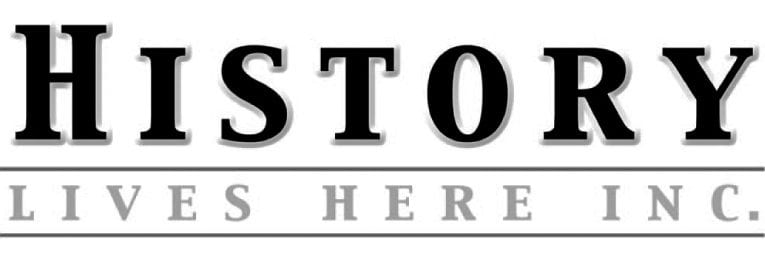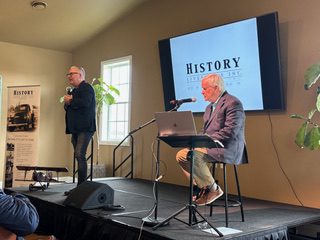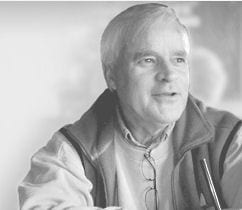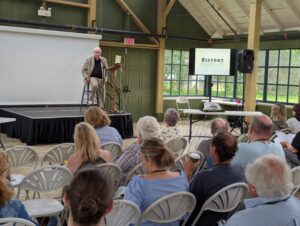The future of The County’s many special spaces
When I was growing up in the County in the 1960s, it was a beautiful place. But it was also one of the poorest areas in Ontario. I actually don’t believe the “Good Old Days” were all that good for most families whose parents operated small farms and businesses. As a child, I was oblivious to the many struggles my parents – and generations before them – must have endured.
We are now at another time in our history. I prefer it. Prosperity provides more options even if it brings new challenges. One of those challenges is how we preserve what is “special” – a key asset that attracts people to remain, retire, invest, and to visit here.
I’m very familiar with these issues. Over the last 20 years since I returned to my hometown of Picton, I have been engaged in multiple efforts to preserve and promote the County’s many heritage spaces. I’ve served on committees, helped raise money for a wide range of heritage properties and projects, developed heritage products like walking and bus tours, plays, re-enactments, The History Moments series of historical vignettes, which played before movies at The Regent Theatre, and worked to save some irreplaceable buildings like the Glenwood Cemetery Chapel from demolition. I’ve also lost many heritage battles.
With so much development underway, the great danger is that we will lose precious farmland, conservation areas, and other special spaces to short-term planning driven by economic considerations alone. But we’re facing another major threat as well – the aging of the volunteer sector.
This place runs on volunteers. There are many local groups supporting worthwhile causes all competing for limited sponsorship dollars, donations, event dates, and venues within the community. We have 7 museums; over 100 cemeteries including nearly 60 still in operation; 10 churches in Picton alone; and at least 30-40 groups working in the history, heritage and conservation sectors looking after the many special spaces requiring constant care.
Each year, more groups are cancelling their events because they cannot find younger volunteers to take their place. There has been a herculean volunteer effort over many decades to undertake countless community projects. We’ve achieved great things together. But there are limits to volunteerism. And I think we’re reached it. We cannot continue to do what we have always done. We need to embrace profound change.
One thing we could do is sell some of the municipality’s many buildings with the sale revenues invested into a dedicated heritage fund that supports the maintenance of the properties we keep. This is painful I know as some years ago we sold our farm that had been in the family for 100 years. But the farm is still farmed by local farmers. The barn and original house have been respectfully transformed by its new owners. I don’t think it gets much better than that. So, I believe it is a time we let go of our emotional ties to some of these properties – because it is in the best interest of preserving them.
Another initiative is to work collectively to package our history into a social enterprise business retailing heritage products and experiences to visitors worldwide – to develop a Heritage Economy.
Many communities around the world have adapted to change by retailing their history. We could easily create memorable travel packages including gourmet meals and accommodation, wine, walking and nature tours, re-enactments, plays, and events like the Christmas House Tour, Flashback February, Maple In The County, the Arts Trail, local fairs and other events. These already exist. But they are fragmented and uncoordinated. And most don’t contribute to any central heritage fund supporting maintenance of our special spaces.
We need to bring these many capacities together in a collective effort that “upsells” our estimated one million annual visitors to spend more during their stays with a portion of the proceeds donated to the Built Heritage Fund administered by the Community Foundation, or other funding programs supporting local heritage projects.
In many places in the world where I’ve travelled, history makes money. We have lots of history, but we are not making any money from it. We’re going to need to soon start making money from it if we are to maintain the many heritage properties currently supported by aging volunteers.
We need to develop a Heritage Economy – the notion that history can be a suite of products, services, and experiences retailed worldwide as a community, social enterprise business.
Let’s aspire to become a sort of “Gettysburg North” after the small Pennsylvania town that retails its three days of Civil War History. It’s worth nearly $700 million a year to the economy of a town with only 6,500 residents, but with three million annual visitors. Closer to home, The Kingston Penitentiary Museum has transformed a mothballed 1830s prison into a frequent movie set, and tour experience generating about $24,000/day seven days a week during the tourism season. In our community, Base31 is transforming an historic former military base into an event venue and destination as a market-based business.
Let’s embrace change. Let’s think bigger and act more boldly. Let’s create a Heritage Economy transforming local history into a community business and significant economic driver.





